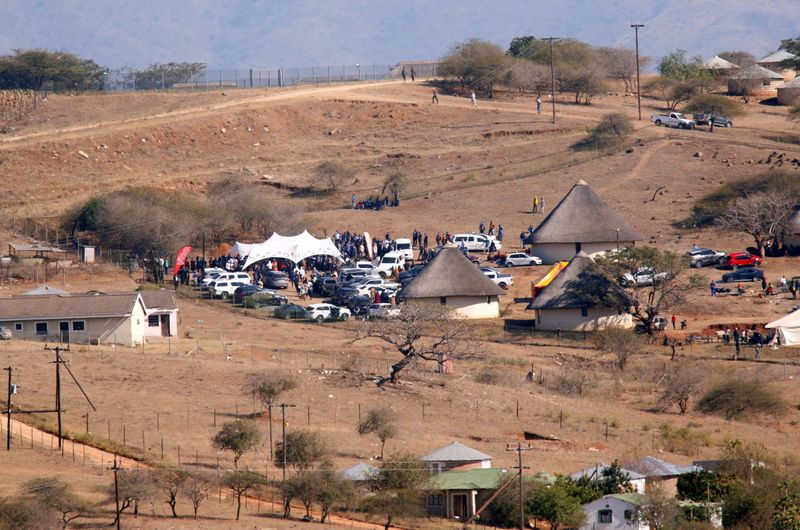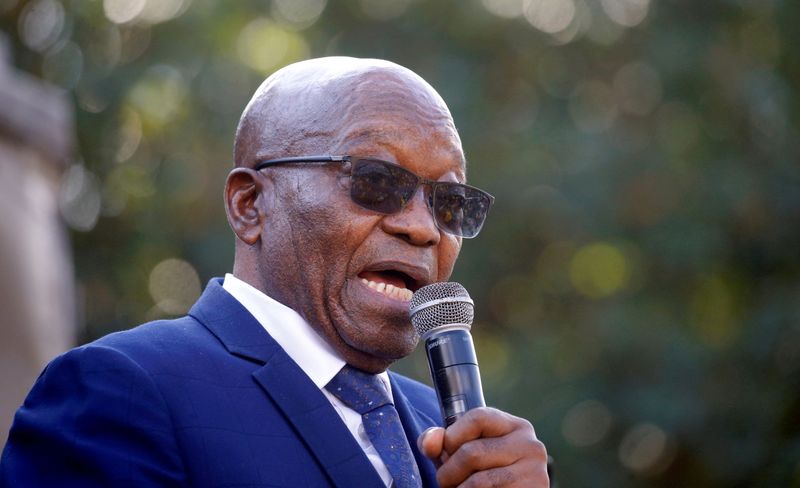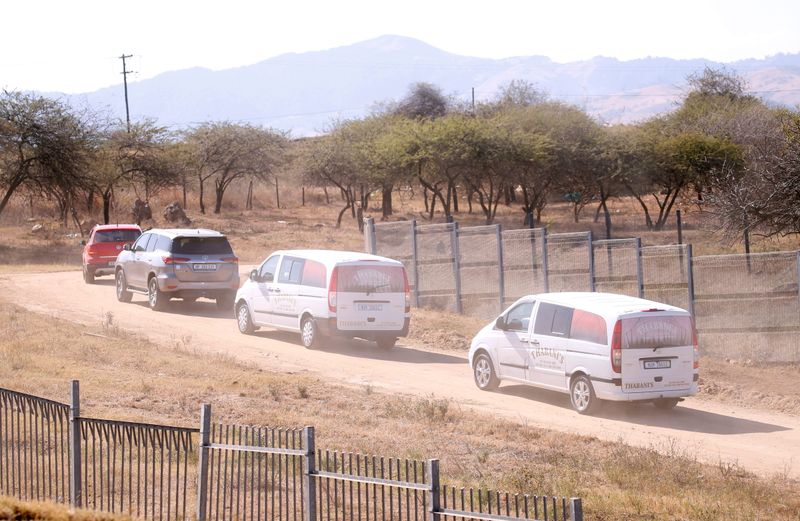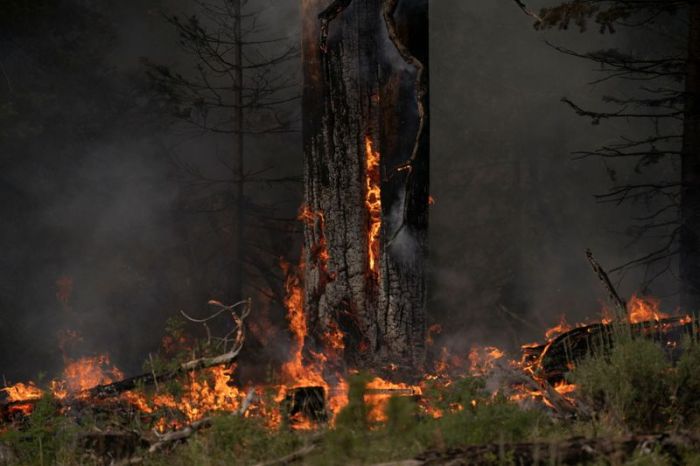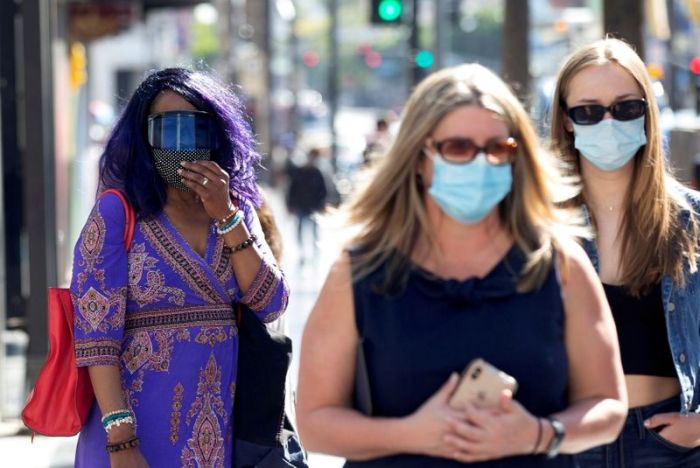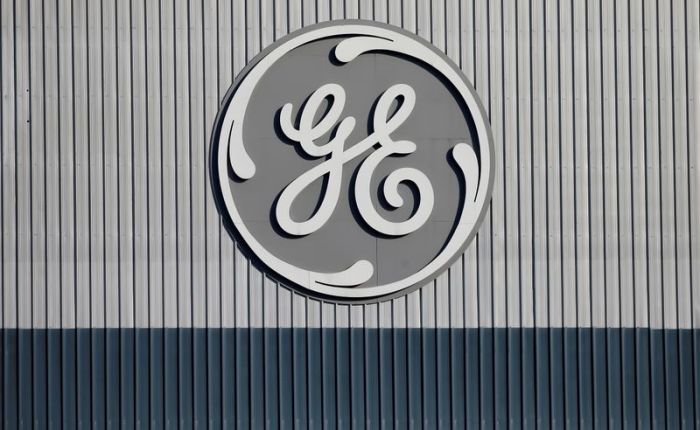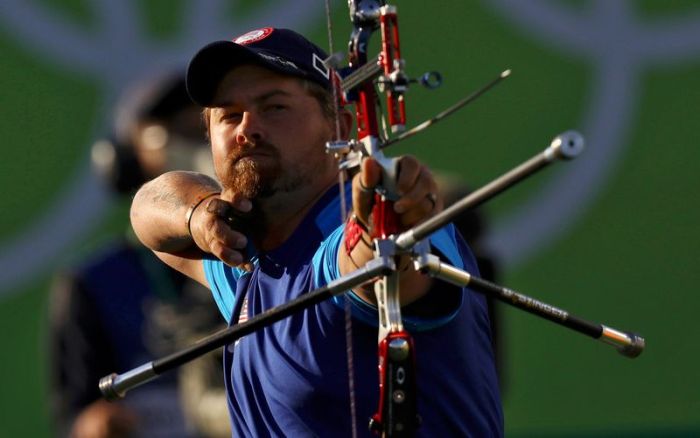NKANDLA, South Africa (Reuters) -Former President Jacob Zuma, whose jailing this month led to South Africa’s worst outbreak of violence in years, was granted compassionate leave to attend the funeral of his younger brother on Thursday.
He was back in prison by the afternoon, the government said.
Zuma, wearing a dark suit and white shirt, was flanked by family members as he walked from his homestead to his brother’s neighbouring property in Nkandla, in KwaZulu-Natal province, a Reuters journalist said.
Soldiers patrolled nearby and military and police vehicles were stationed along the road.
Zuma has been incarcerated at Estcourt prison since handing himself over on July 7 to serve a 15-month sentence for contempt of court. The prison is in Kwa-Zulu Natal.
Zuma was granted compassionate leave as he was considered a short-term, low-risk inmate, the department of correctional services said in a statement. Zuma was not required to wear an offenders’ uniform outside prison walls, it said.
“He was accompanied by correctional officers supported by law enforcement agencies. And we are to confirm that he has returned back to the Estcourt correctional facility as we speak,” cabinet minister Khumbudzo Ntshavheni told a news conference on Thursday afternoon.
Zuma, 79, was sentenced last month for defying a constitutional court order to give evidence at an inquiry investigating high-level corruption during his nine years in office until 2018.
Protests by his supporters broke out when Zuma handed himself over and escalated into riots involving looting and arson that President Cyril Ramaphosa has described as an “insurrection”.
The unrest swept across Kwa-Zulu Natal and spread to the country’s economic heartland where Johannesburg is located. Ntshavheni said the death toll had risen to 337.
Thousands of soldiers were deployed to help quell the violence, among the worst since the governing African National Congress won South Africa’s first democratic elections in 1994 to replace white minority rule.
(Reporting by Siyabonga Sishi in Nkandla, Wendell Roelf in Cape Town and Alexander Winning in Johannesburg; Editing by Olivia Kumwenda-Mtambo and Angus MacSwan)

